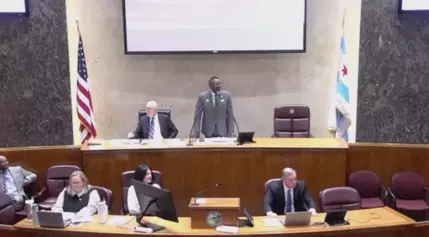Unraveling Chicago's Budget Crisis and Its Impact on Credit
Budget Shortfall and Municipal Bond Proposal
After a Thanksgiving break, Chicago City Council members have returned to address a significant budget challenge. They propose to sell 6 million in municipal bonds to bridge the nearly billion gap. This move comes after the council rejected Mayor Brandon Johnson's 0 million property tax increase, leaving officials with limited options. The city plans to borrow 0 million backed by sales-tax revenue and 7 million through general obligation bonds. While refinancing may offer some relief, it won't solve the entire problem.Such a large bond sale is a significant step for the city, as it will impact its financial standing in the long run. The decision to sell bonds instead of relying solely on tax increases shows the complexity of the budget situation and the need for creative solutions.
Investors are closely watching these developments, as a credit downgrade could lead to higher borrowing costs for the city. This, in turn, could affect various projects and services that Chicago residents rely on.
Tensions at Council Meeting and Public Outcry
At Monday's council meeting, tensions ran high as residents voiced their frustrations. Danielle Carter, a Chicago resident, directly confronted Mayor Johnson during public comments."Let's start with you. Your salary," Carter said. "You are going down in history as the worst mayor in America. Let's start with cutting yours… Let's put the police back in our neighborhoods." Her words reflected the anger and concern of many residents who feel the impact of the budget crisis on their daily lives.
The public outcry highlights the importance of finding a sustainable solution to the budget problem. It also shows the need for better communication and collaboration between the city government and its residents.
Investor Concerns and Credit Rating Review
Investor concerns are mounting as the city's credit rating is under review for a potential downgrade. A lower rating would make it more expensive for the city to borrow money, adding to the financial strain.If the city fails to finalize a budget soon, it could face even greater challenges. This could lead to cuts in essential services, delays in infrastructure projects, and a decline in the city's overall economic stability.
City officials are aware of the importance of addressing these concerns and are working hard to find a balanced solution. They need to consider the needs of both the residents and the financial markets to ensure the long-term viability of the city.

